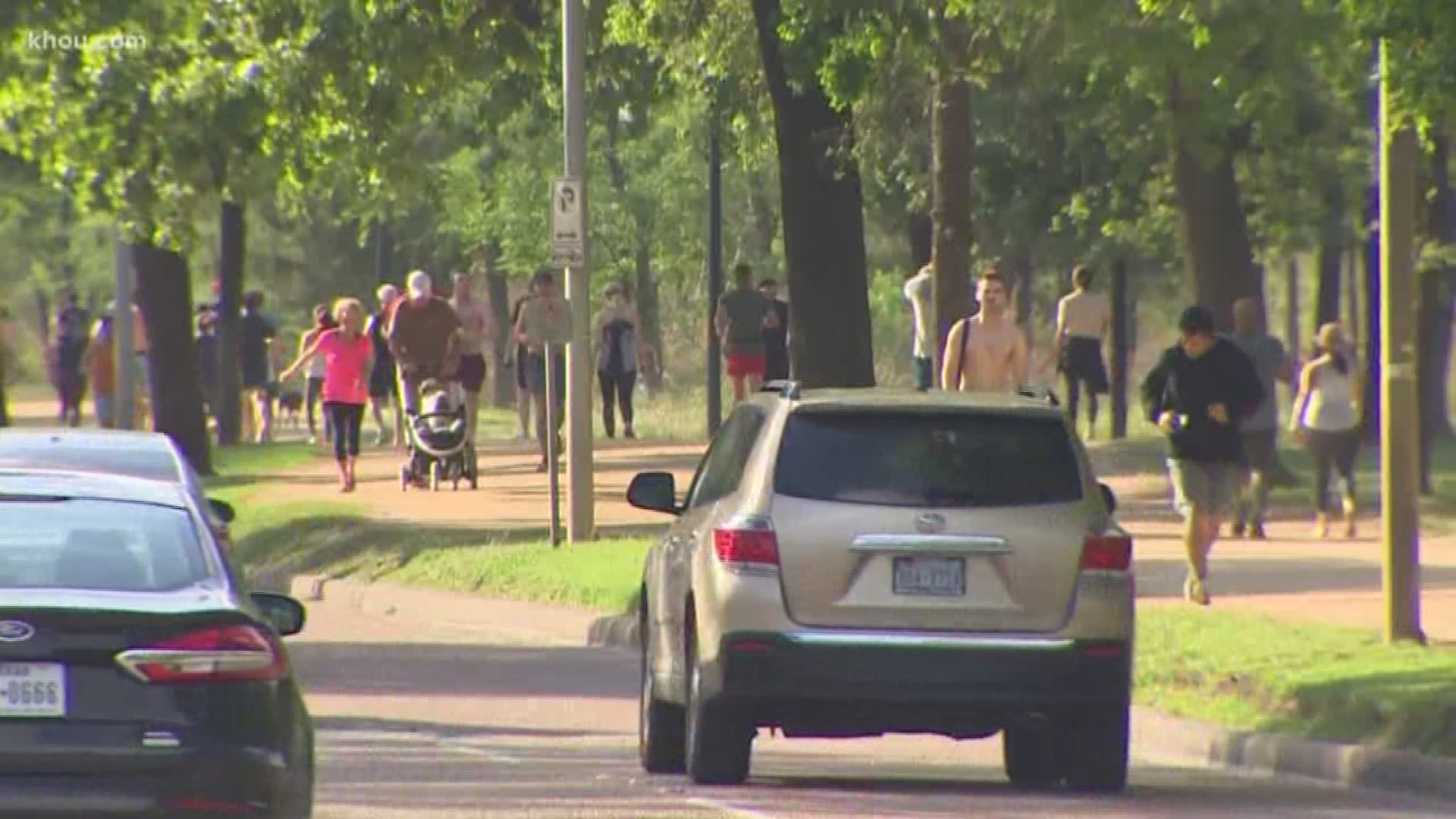HOUSTON — As a mother of two boys, for Rebecca Rodriguez, it’s an outdoor break.
“It’s been stressful," Rodriguez said. “I’m a little bit tired from keeping them busy and keeping myself busy.”
For the Williams family, it was a quick stop to play.
“Staying in the house is a lot and so being able to get out and get some fresh air, let our bodies get some sunlight and yeah, let our daughter have some fun," Ebonie Williams said.
As joggers hit the trails in Rice Village, riders were keeping their distance waiting for the rail.
A lot of people seem to be outside lately, and doctors say that’s OK, as long as you practice "social distancing," meaning keep at least 6 feet away from others.
“Going outside is one of the best things people can do to help relieve that cooped-up feeling," said Dr. Wesley Long, assistant professor of pathology and genomic medicine at the Academic Institute Houston Methodist.
Dr. Long said the safest place to be outside is in own your backyard. Next, your neighborhood, and lastly, a park.
“Parks and things like that, I think you just have to be much more aware of the high touch surface areas. Try to avoid using the bathrooms at the park. Try to avoid the water fountains," Dr. Long said.
When it comes to playgrounds, you can’t clean it all. But you can limit what your child plays on or try to sanitize what you can. At the very least, wash their hands.
“We all stopped and washed our hands before we came. We’ll be washing our hands after. Hand sanitizer for the little one," James Williams said.
When it comes to the grocery store, go as little as you can. Dr. Long says curbside pickup or delivery is best, but if you have to go inside, be safe.
“When you’re at the store, avoid touching your face. Immediately after you leave the store, get everything loaded in your car, sanitizing your hands, or washing your hands if there is a sink readily available, just for your own safety," Dr. Long said.
Coronavirus symptoms
The symptoms of coronavirus can be similar to the flu or a bad cold. Symptoms include a fever, cough and shortness of breath, according to the Centers for Disease Control.
Most healthy people will have mild symptoms. A study of more than 72,000 patients by the Centers for Disease Control in China showed 80 percent of the cases there were mild.
But infections can cause pneumonia, severe acute respiratory syndrome, kidney failure and even death, according to the World Health Organization. Older people with underlying health conditions are most at risk.
The CDC believes symptoms may appear anywhere from two to 14 days after being exposed.
Human coronaviruses are usually spread through...
- The air by coughing or sneezing
- Close personal contact, such as touching or shaking hands
- Touching an object or surface with the virus on it, then touching your mouth, nose or eyes before washing your hands.
Help stop the spread of coronavirus
- Stay home when you are sick.
- Eat and sleep separately from your family members
- Use different utensils and dishes
- Cover your cough or sneeze with your arm, not your hand.
- If you use a tissue, throw it in the trash.
Lower your risk
- Wash your hands often with soap and water for at least 20 seconds. If soap and water are not available, use an alcohol-based hand sanitizer.
- Avoid touching your eyes, nose, and mouth with unwashed hands.
- Avoid close contact with people who are sick.
- Clean and disinfect frequently touched objects and surfaces.
- If you are 60 or over and have an underlying health condition such as cardiovascular disease, diabetes or respiratory illnesses like asthma or COPD, the World Health Organization advises you to try to avoid crowds or places where you might interact with people who are sick.
Get complete coverage of the coronavirus by texting 'FACTS' to 713-526-1111.

